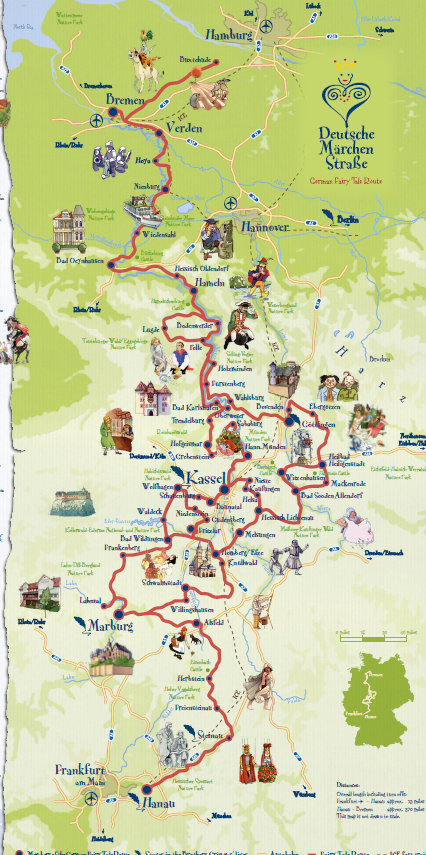About The Brothers
The Brothers Grimm's Kinder und Hausmärchen (Children's and Household Tales) is one of the most influential and widely read books in the world - second only to the Luther Bible. It has been translated into over 160 different languages and is a part of the UNESCO "Memory of the World Register." While the Brothers are usually credited with the first systematic collection of folk and fairy tales, they are neither the founders of Germanic folklore nor the first to collect and publish their tales. In fact, they were asked by a well-known poet named Clemens Brentano to gather and assemble folklore and legends and send it to him to publish. Fortunately for us, Brentano never published these tales. Instead the Brothers eventually took over this endeavor and developed the quintessential book of stories that we know and love today. While the Brothers had multiple editions of their books published in their lifetime - seven in total - there are still new editions and versions being published to this day. The stories have never been static, but are in fact continually growing and evolving. They are used and adapted by a number of entities, from Nazi era propagandizers to American Disney creators.
The Brothers hoped to discover an idealized version of the German people that transcended time and communities in their research on linguistics, language, and heritage. This was a lofty goal, for in the early 19th century, the German-speaking populace was not a unified country but was divided into over 200 principalities which were constantly at war with each other. Furthermore, during the Brothers' life time, Napoleon Bonaparte was building his French empire, setting out to conquer all of Europe. While individuals such as Napoleon, Goethe, and Beethoven were torn between earlier Enlightenment ideals and the new Romantic nationalism, the Brothers Grimm longed for an idealized, unified Germany, a Germany that could stand against France, conquering all its petty tyrants. This desire was voiced by many, especially in the Brothers' circle of friends and professors. Thus, the search for folk tales began as way to "reconstitute German culture in its oral and written forms so that it would not fade from the memory of the German people." The Brothers viewed their works, including Kinder und Hausmärchen and their German dictionary, "as part of a social effort to foster a sense of justice among the German people and to create pride in the folk tradition."



